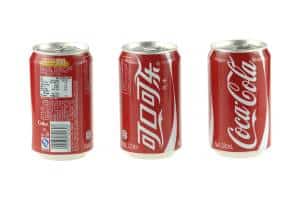The Lighter Side:
Lost In Translation: Advertising Blunders
- Clairol introduced a new curling iron they called the “Mist Stick” to the German market, only to find out that “mist” is slang for manure in German. Not too many people had use for the “manure stick.”
- When Gerber started selling baby food in Africa, they used the same packaging as in the US that featured the “Gerber baby” on the front. Later they learned that in Africa, companies put pictures of what’s inside the package on the label since most people can’t read, thereby causing African consumers to think there was pureed baby inside.
- Colgate introduced a toothpaste in France called “Cue,” the name of a notorious porno magazine.
- Pepsi’s “Come alive with the Pepsi Generation” translated into “Pepsi brings your ancestors back from the grave,” in Chinese.
- The Coca-Cola name in China was first read as “Ke-kou-ke-la,” meaning “Bite the wax tadpole” or “female horse stuffed with wax,” depending on the dialect. Coke then researched 40,000 characters to find the phonetic equivalent “ko-kou-ko-le,” translating into “happiness in the mouth.”

